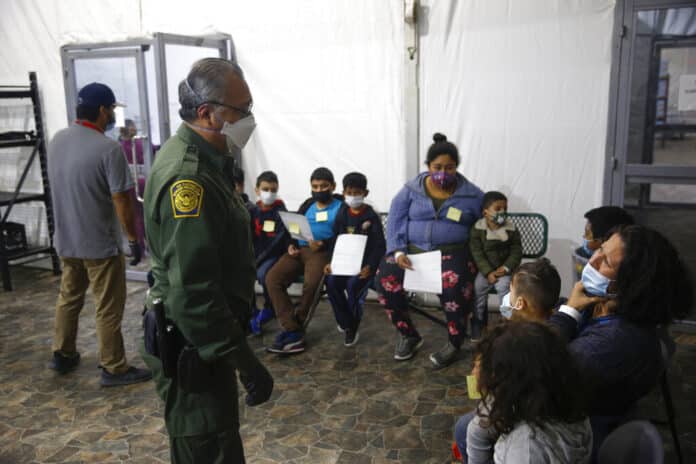The Biden administration has stepped up the screening process for immigrants being detained at the border. However, it includes compromising the screening process for those who are caring for them. Cutting such corners could put many migrants at risk.
Like previous administrations, the White House is opening and enlarging tent facilities and utilizing convention centers and other buildings to ease the overcrowding at the detention camps. A tent compound for unaccompanied children in Donna has been expanded by 375 beds, for example. The administration announced it would open eight emergency sites, adding 15,000 new beds, across the Southwest. Some of them will be operated by private contractors.
These migrant centers don’t have to be licensed or provide all the services required by the Department of Health and Human Services. And in order to staff those new sites quickly, those sites don’t have to conduct background checks that normally are required at these kinds of facilities, such as running their fingerprints through the FBI computerized criminal database.
Such steps shouldn’t be omitted. Many of the people in those centers are women and children, and many of those children are unaccompanied. Reports already have been pouring out about abuses and neglect of children and physical or sexual assault of women. HHS has issued a statement that cursory checks will be made using names, Social Security numbers and other data provided on the applications. Without fingerprint scans and other criminal checks, however, an applicant might be able to hide a criminal background simply by proving false information on the application.
There’s no defensible reason to hire people without a simple computer background check that could take just a few minutes to perform. The waiver could allow the possibility that a person with a history of such crimes might be hired to work with hundreds, even thousands, of women and children who are trapped in these detention centers.
Private contractors also need to be thoroughly vetted. In the past it has been more difficult for human rights advocates, the media and even members of Congress to gain access to privately run facilities. While many contractors seek to do the best job they can, officials must ensure that none of them might be little more than a human warehouse opened to get some federal money.
Another matter of concern is the recent authorization for Border Patrol officials to release people from overcrowded centers without setting a date for their detention hearings.
History tells us that inevitably, some of these people will end up falling through the cracks. Paperwork will be lost or officials later will be unable to find the migrants once a hearing date has been set. Even those who seek to follow established procedures for securing legal residency could find themselves in a limbo of uncertainty, subject to deportation because they never received a notice to appear.
Efforts to reduce the number of people in immigration detention centers is appreciated, but the process still must be thorough. It is best done by improving and streamlining the procedures, not by eliminating steps that could compromise human safety.




